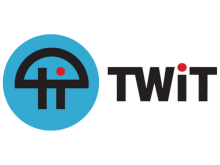Minnesota Lawmakers Introduce Internet Privacy Protections
After elected officials in Washington, D.C., voted to allow ISPs to invade their customers’ privacy online, leaders in Minnesota took steps to protect constituents. A recent amendment in St. Paul may be setting some new rules for ISPs operating in the Land of 10,000 Lakes.
Taking Action In Minnesota
Both the state House and Senate approved omnibus bill amendments that prevent ISPs from collecting the personal data resulting from customer use of the Internet. The Senate amendment language, introduced by Ron Latz, reads like this:
No telecommunications or internet service provider that has entered into a franchise agreement, right-of-way agreement, or other contract with the state of Minnesota or a political subdivision, or that uses facilities that are subject to such agreements, even if it is not a party to the agreement, may collect personal information from a customer resulting from the customer's use of the telecommunications or internet service provider without express written approval from the customer. No such telecommunication or internet service provider shall refuse to provide its services to a customer on the grounds that the customer has not approved collection of the customer's personal information.
The body voted 66 - 1 to adopt the language into the Senate omnibus jobs bill, SF 1937. In the House, an almost identical amendment was adopted into HF 2209, their economic development omnibus bill. The Senate version added the last sentence, preventing ISPs from denying service unless a customer allows their ISP to collect data.
After the amendment was included in the bill, Sen. Latz commented that the language was, “about standing up and saying that our online privacy rights are critically important.”



